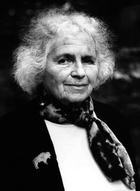
Grace Paley (New York, 1922 - Vermont, 2007) lived between two cultures: that of her parents, Russian Jewish immigrants, and the people of the street, who provided the material for her writings. His work is brief - a large part of his time devoted to politics - but he placed it in a prominent place among American writers: "Grace Paley is to the narrative what Sylvia Plath was to American poetry. Recovered by feminism, it is the practical demonstration that women can contribute to literature irony and humor "(Marta Pessarrodona); "Graceful representative of Jewish humor, Grace Paley is also one of the richest traditions in American history. Narrator of exception "(Leopoldo Azancot); "Magnificent. He operates with free criteria, applying the solutions dictated by his own anarchic instinct or his sovereign will. It has no waste "(Robert Saladrigas, La Vanguardia); "Essential. A way of understanding literature that does not believe in principles or endings, much less in the univocal of straight lines. It is language that makes these lives so unique, so special, so curvilinear and unpredictable "(Sergi Sánchez, El Periódico); "One of the most extraordinary narrators of the second half of the twentieth century. Shrewd stories, irresistibly comical and of great human depth "(Cecilia Dreymüller, El País); "Tales full of humor, direct, sharp, expressive. A complex human mosaic, very funny and unforgiving honesty "(Mariana Enriquez, Página / 12).





